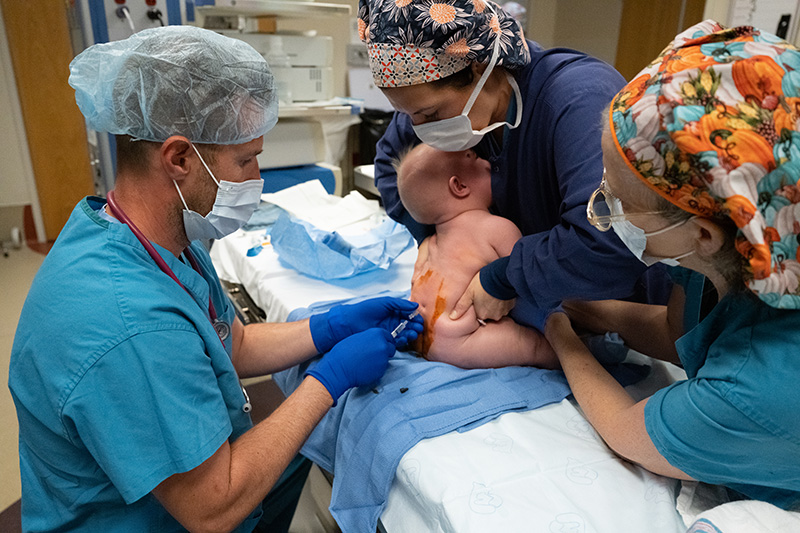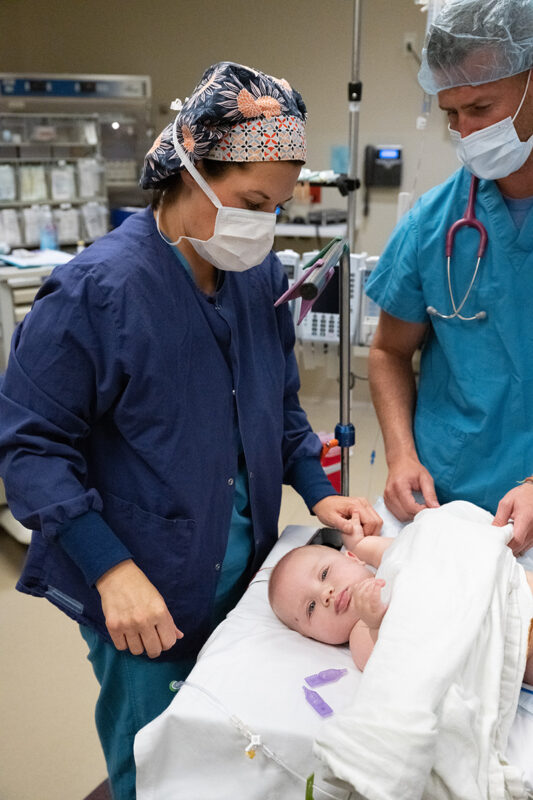Amid concerns of the neuro-cognitive effects of general anesthesia on young children, Akron Children’s anesthesiologists are using spinal anesthesia to perform many common urologic and general surgery procedures in newborns to children less than 2 years of age.
“This allows us to eliminate general anesthesia for children under the age of 2 when elective surgery needs to be done,” said Matthew Mitchell, DO, pediatric anesthesiologist and associate director of outpatient surgery. “When surgical procedures below the belly button are necessary, such as hernia repair, hydrocelectomy or correction of hypospadias, spinal anesthesia is a great alternative to general anesthesia.”
The spinal anesthesia program at Akron Children’s began about three years ago. Tarun Bhalla, MD, MBA, chair of anesthesia and pain medicine, helped develop the spinal anesthesia program while at Nationwide Children’s Hospital in Columbus and has championed the development of a similar program here.

Dr. Matthew Mitchell administers spinal anesthesia.
Akron Children’s first case was a hernia repair on a newborn.
“We had twin boys in the NICU who both needed hernia repair. One of the twins had hernia repair under general anesthesia, but we did a spinal on the second child with excellent results,” Dr. Mitchell said.
A numbing cream is applied to the child’s back to limit pain with injection. Spinal anesthesia eliminates the need to intubate the child, while the effects of the spinal anesthesia are immediate.
“Babies are so comfortable that they often fall asleep during the procedure,” said Dr. Mitchell. “Once the procedure is over, they are able to feed immediately in the post-operative area.”
As soon as the child is able to move their lower limbs, they’re ready to go home.
In leading the charge for spinal anesthesia at Akron Children’s, Dr. Mitchell has created a spinal team that includes pediatric anesthesiologists and certified registered nurse anesthetists, who have the important task of holding the children during procedures. Without a good hold, the spinal becomes a much more difficult procedure.
“Our surgical colleagues have also been vital to the success of the spinal program,” Dr. Mitchell said. “They are able to present this option to parents in the pre-operative clinic, giving families time to process the information prior to the day of surgery.”
The team plans to present their outcomes to other institutions across the country.
“This is a much safer way to perform surgery on young children with no narcotics or artificial airways,” he said. “Anesthesia typically scares parents, so this is much more comforting for them to see how calm and comfortable their babies are.”











